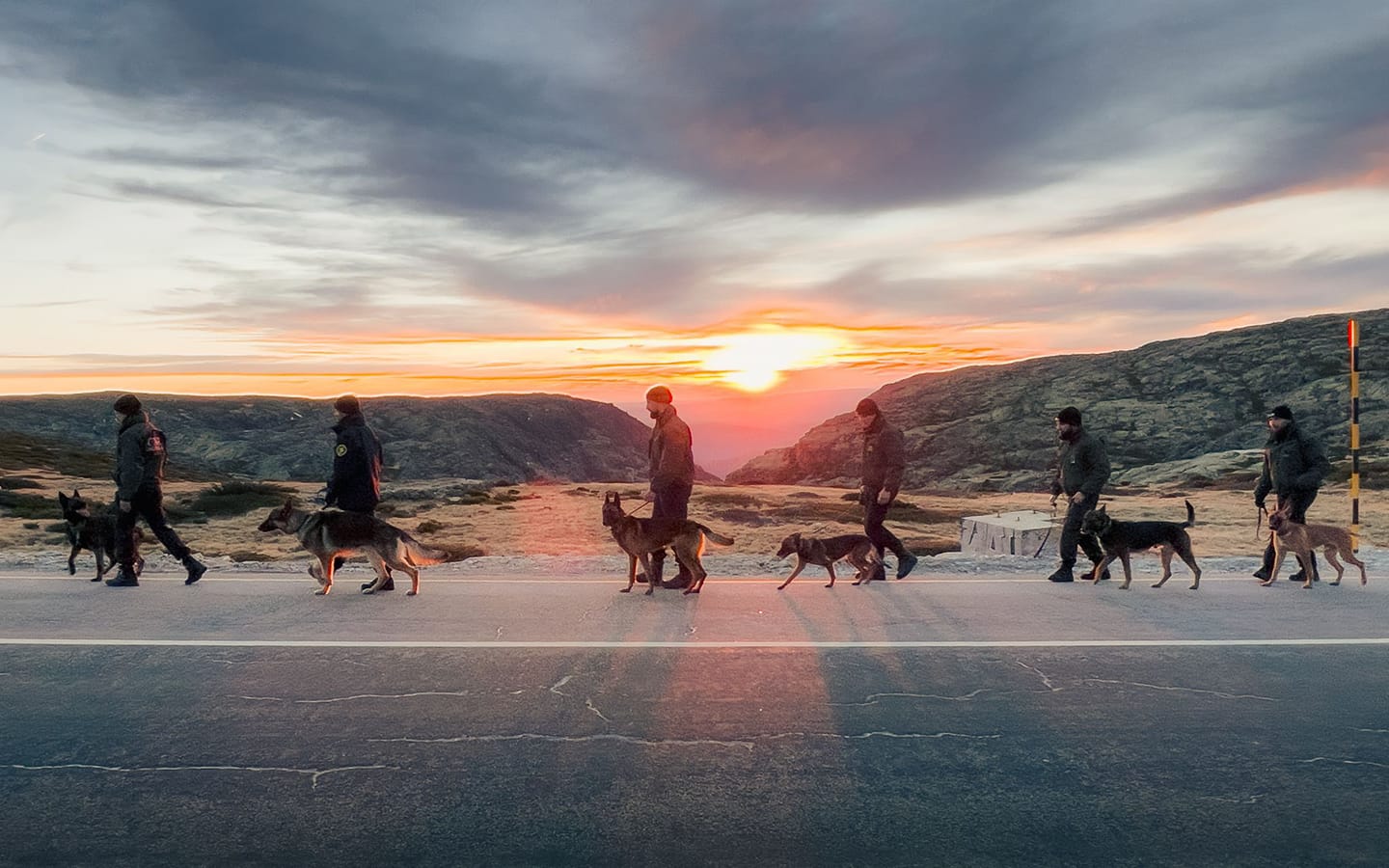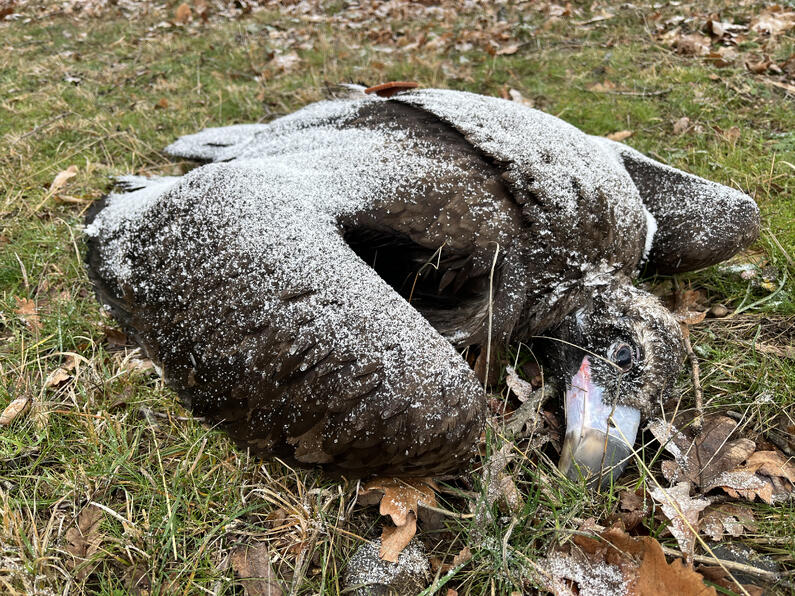The Dadia-Lefkimi-Soufli Forest National Park in Greece celebrates a record number of 27 Cinereous Vultures fledgling, with the population reaching its highest breeding numbers in three decades. The breeding success, two years after the wildlfire that almost destroyed the colony, stands as a testament to the past and ongoing conservation efforts in the area.
Twenty-seven young Cinereous Vultures (Aegypius monachus) have successfully fledged from their nests in the Dadia-Lefkimi-Soufli Forest National Park colony (Greece). This year saw an exceptional breeding season for this critically important colony in northeastern Greece. This success rewards decades of systematic monitoring and conservation actions.
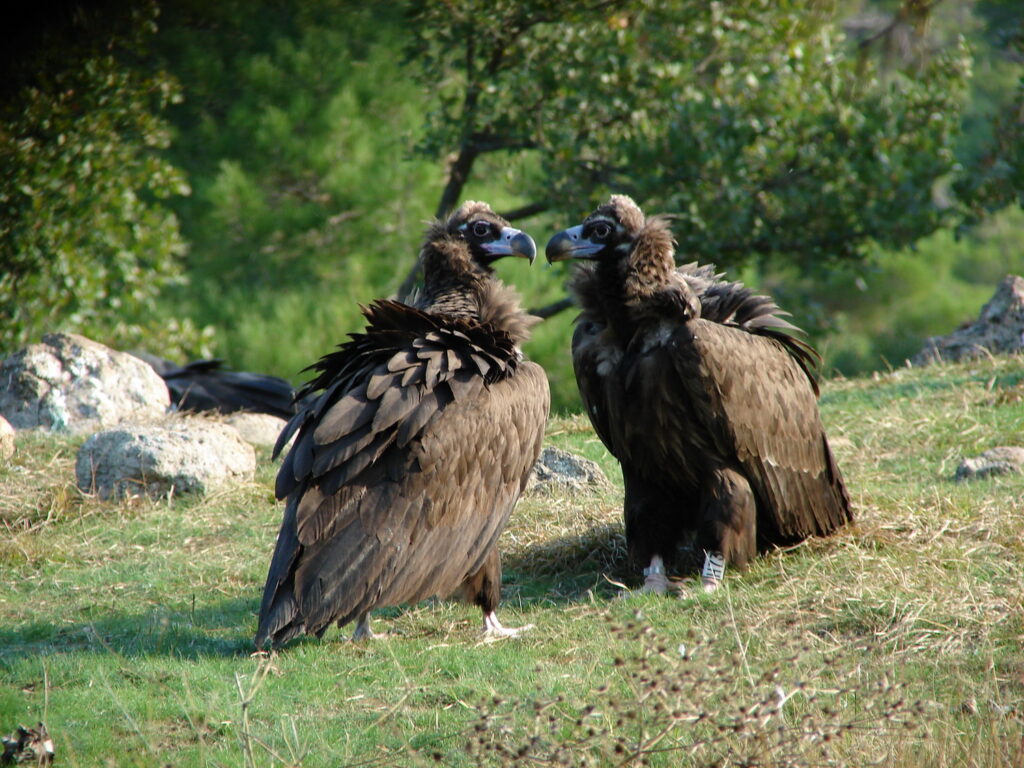
Rising from the ashes
In 2023, a devastating wildfire threatened the survival of the Cinereous Vultures colony in the Dadia National Park. Yet during the first breeding season after the fire, conservationists documented 38 nesting pairs, an already promising sign.
This year they registered a record of 47 pairs, which produced 27 fledglings. This success shows not just recovery, but remarkable growth. Each of those young vultures now carries the potential to establish new territories, and contribute to the species’ recovery across the Balkans in years to come.
The Balkans’ last stronghold
The Dadia colony represents a crucial population for the entire Balkan Peninsula. Once widespread across the region, the Cinereous Vulture nearly disappeared from the Balkans during the 20th century due to poisoning, habitat loss, and food scarcity. Today, the Dadia-Lefkimi-Soufli Forest National Park hosts the only remaining natural breeding colony of this species in the Balkans.
Cinereous vultures play a vital ecological role, consuming carrion and preventing the spread of disease. However, their slow reproductive rate and late sexual maturity make population recovery a slow and challenging process. Cross-border cooperation between Greece and Bulgaria is essential to ensure robust and long-lasting conservation results in the Balkans.
The results of relentless conservation actions
The steady growth of Dadia’s breeding population reflects years of dedicated conservation work addressing multiple threats simultaneously.
- Reducing mortality through threats mitigation, particularly from poisoning and powerline electrocution;
- Enduring food availability through supplementary feeding stations and collaboration with local livestock farmers;
- Protecting and maintaining suitable nesting habitat, particularly the old-growth pine forests that Cinereous Vultures prefer for breeding, and installing artificial nest platforms to replace the destroyed breeding sites after the wildfire in 2023 (NECCA);
- Coordinated conservation efforts between Greece and Bulgaria to strengthened and protect regional populations.
The LIFE Rhodope Vulture project is contributing to all these conservation actions and reintroducing Spanish Cinereous Vultures in the Eastern Rhodope Mountains to encourage the establishment of a new colony in Bulgaria. The project also plans to equip several birds, including some of this year fledglings, with GPS transmitters. This will provide crucial data about the vultures movements and behaviour and alert the team in case of emergency. Lastly, the Natural Environment and Climate Change Agency (NECCA), partner of the project, will install 20 additional artificial nests in the Dadia-Lefkimi-Soufli Forest National Park to support the growing colony.
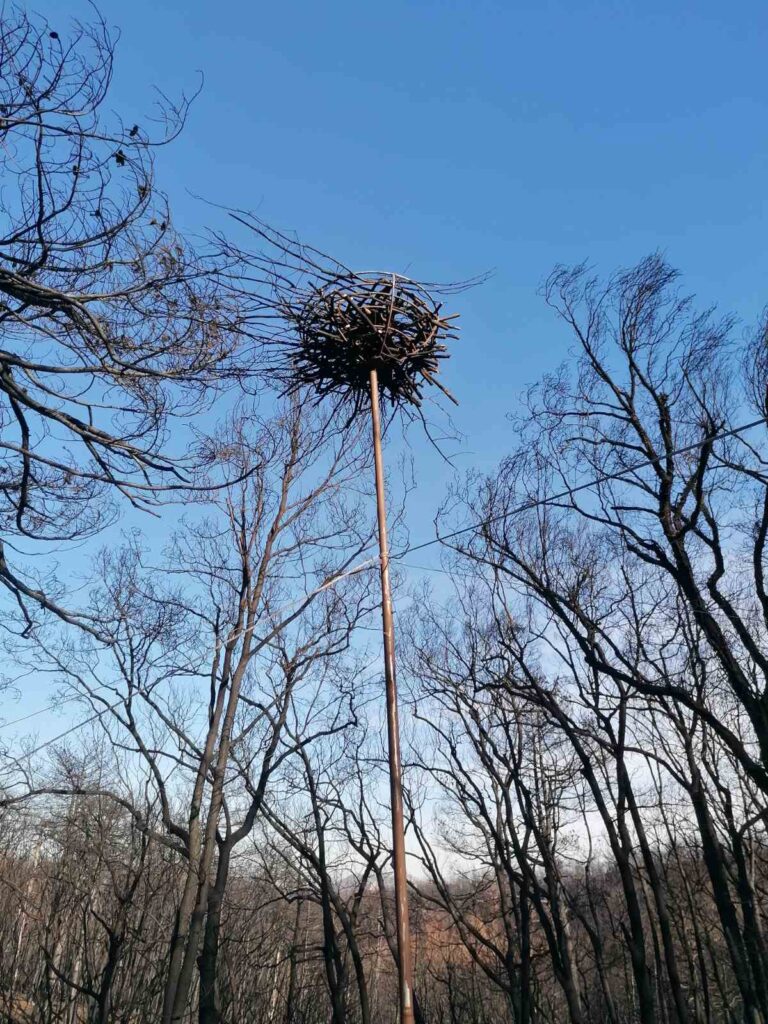
Looking forward with hope
The success at Dadia National Park offers us hope and a valuable lesson for vulture conservation. It proves that long-term, multifaceted conservation programmes can effectively turn the tide for threatened species. These 27 young vultures carry with them the hopes of everyone who values vultures and the essential role they play in healthy ecosystems. We look forward to the continued growth of this population and the establishment of new colonies across the Balkans, working to ensure that future generations will witness these majestic birds flying over the mountains and nesting in the forests of southeastern Europe.
Source: NECCA
LIFE Rhodope Vulture
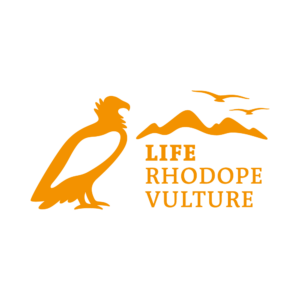
Co-funded by the LIFE Programme of the European Union and Rewilding Europe, The LIFE Rhodope Vulture project is dedicated to the recovery of the Cinereous Vultures population in the Rhodope mountains, between Bulgaria and Greece. The project aims to increase food availability for the species and address human wildlife conflicts. It will reintroduce birds from Spain to establish a new colony in Bulgaria and conserve the Greek colony in Dadia-Lefkimi-Soufli National Park. Lastly, the project aims to foster cooperation among local businesses, conservation initiatives, and stakeholders, and raise awareness about the ecological benefits of Cinereous Vultures. The project duration is 5 years, from June 2024 to May 2029. The total budget is €4,160,118 Euro. It is coordinated by Bulgarian Society for the Protection of Birds (BSPB) with the participation of Rewilding Rhodopes Foundation. It also benefits from international collaboration, including the Vulture Conservation Foundation.



